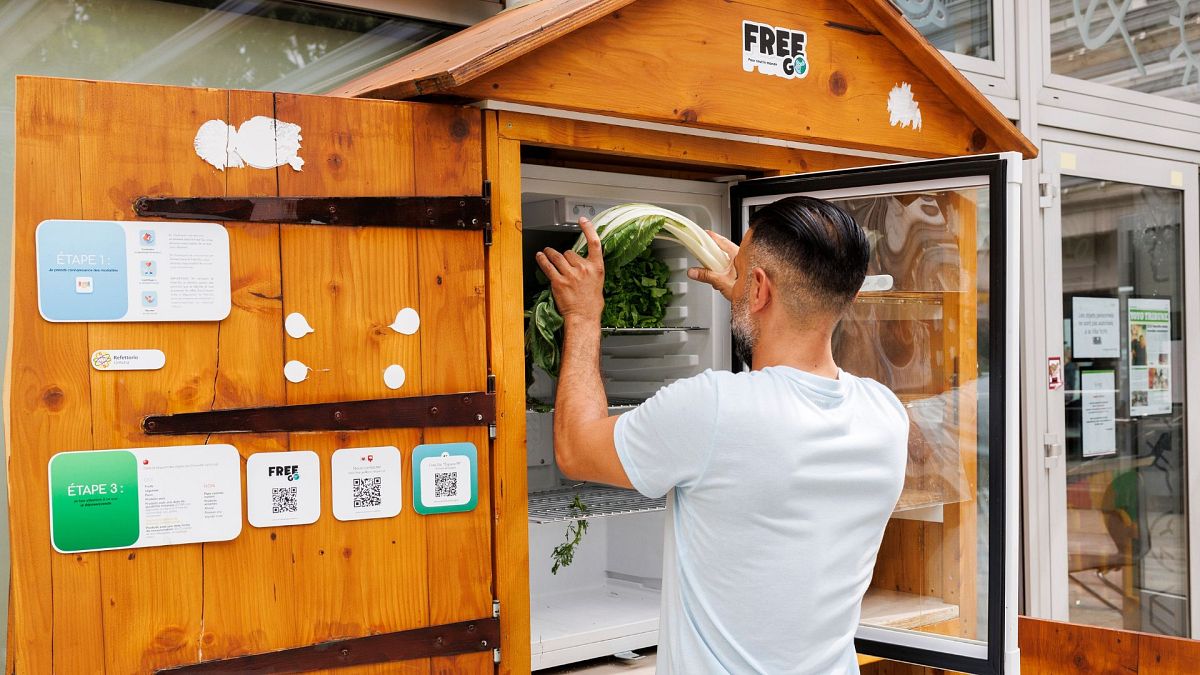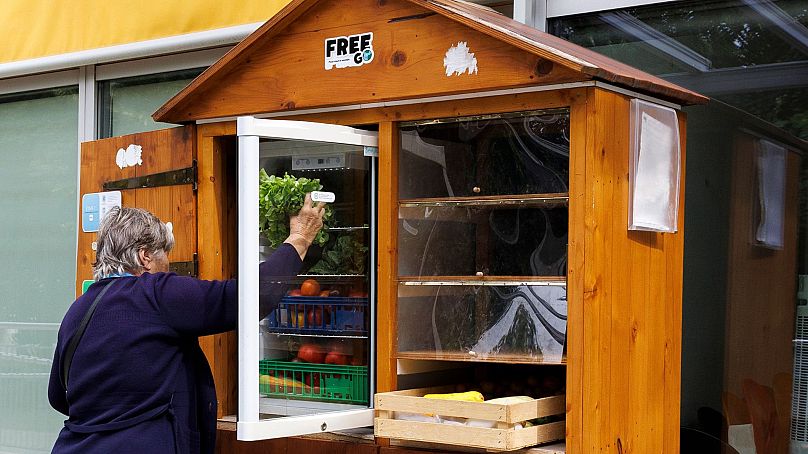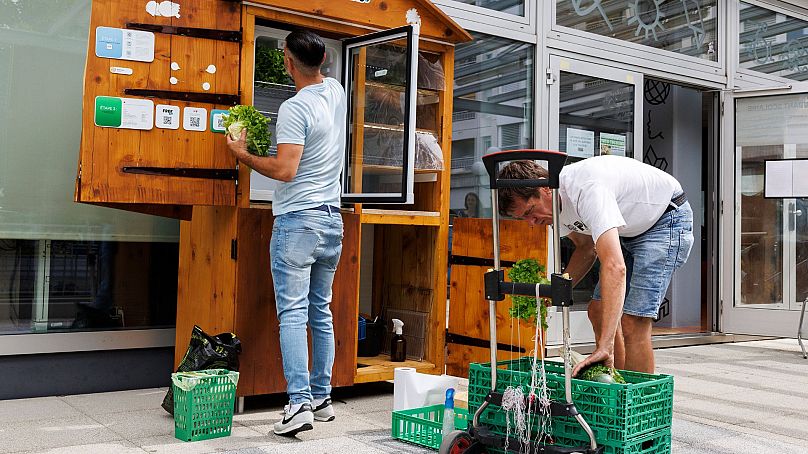In this European city, you can share your unused groceries in free-to-use community fridges.
Are you constantly throwing out food that you didn't get around to eating?
In an effort to cut waste, a Geneva nonprofit is rolling out street-side, free-access refrigerators where people can give and take food that might otherwise perish.
The project launched a year ago with a single fridge outside a community centre. The first fridge helped save around three metric tonnes of food from going to waste last year.
Geneva now has four fridges, strategically placed around town, with a fifth one planned before the end of the year.
Run by nonprofit Free-Go - whose name riffs off the word 'frigo', a colloquial French term for refrigerator - the programme costs about €36,500 to run each year. It is funded by charity groups and the city government.
How do community pantries work?
The street-side refrigerators and pantry shelves can be freely accessed by the public. Restaurateurs, at-home cooks and others can drop off unused food that's close to its use-by date, such as fruit, vegetables, bread, croissants and other perishables.
Fresh off depositing some tomatoes from her vegetable garden, Severine Cuendet, a 54-year-old teacher, said "we have too much" and applauded the initiative "because this neighbourhood has a lot of need."
Passersby can then grab items to take home for free.
Because the donations vary, it's uncertain what will turn up in the fridges.
Outside a community-centre in a working-class area of Geneva on Friday, Shala Moradi, a 65-year-old housewife from Iran who has lived in Geneva for a decade, said she had been looking for some bread - and there was none. Yet, she says she appreciates the initiative.
“It’s very good. I can take strawberries, cherries, things like that," she said. "The free [part]: I like that too.”
It’s part of a bigger effort by communities in Switzerland and other European countries to do their part for the environment while helping to cut down on food waste.
Marine Delevaux, the project’s director, says the deposited food is generally snapped up within an hour after delivery.
“Generally, when the food collected from shops and restaurants arrives in the morning, people are already waiting to help themselves," says Delevaux. Of the food donated last year, only about 3 per cent had to be thrown away because nobody wanted it.
Free-Go is experimenting with scheduled pickups at apartment buildings to make it easier for residents to participate in the programme. It has also set up a 'hotline' that restaurateurs can use to call for retrieval of unused food.
How are community pantries regulated?
For health and regulatory reasons, no frozen foods, open food containers, prepared meals or alcohol are allowed in the fridges.
Free-Go says contributors of food from the private sector - such as restaurants or food vendors - must make a commitment to ensure the donated food is safe to eat.
Swiss law says unopened items like canned food and crackers past the “recommended use-by date” can be consumed for up to a year afterwards, according to Delevaux.
How big is Switzerland's food waste problem?
The Swiss government estimates that nearly one-third of all food products destined for consumption is wasted or thrown away needlessly. This amounts to about 330 kg of food waste per inhabitant each year. Of that, about 100 kg are attributed to waste by households.
Free-Go says close to 1 billion metric tonnes of food go to waste every year around the world - using up energy and other resources in the farming and transportation process.
“Wasting food is not only an ethical and economic issue but it also depletes the environment of limited natural resources,” the EU’s Commission says.
Where else is food sharing popular in Europe?
Similar food-sharing campaigns are in place in Switzerland's capital, Bern, and in western Neuchatel, after the idea was imported from Germany.
According to Foodsharing.de, a community group in Germany that started more than a decade ago, more than a half-million people in Germany, Switzerland and Austria have made “the food-sharing initiative an international movement”. They have helped save over 75 million metric tonnes of food from going to waste.





